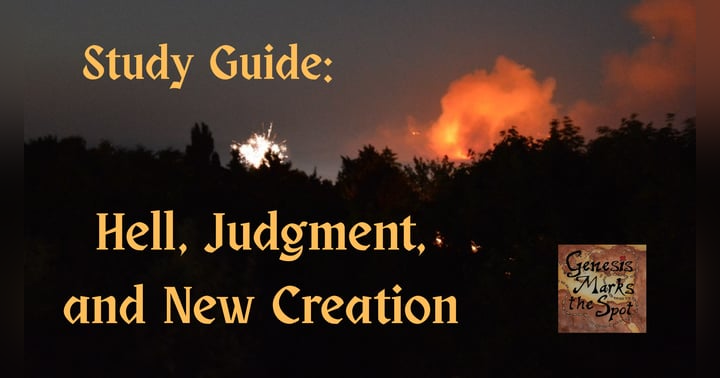Demythologizing Idols? Finding a Biblical Middle Ground

Here’s another common question centered on taking the divine council worldview into application for today. These are essential points for us, because I don’t think we should leave biblical context in the realm of intellectual engagement, but rather we need to bring it full force into our lives of discipleship.
If ‘idol worship’ has a technical meaning in its original biblical context in light of allegiance to real spiritual beings, then how should we communicate the concept of idolatry today, particularly in cultures where literal devotion to other gods isn’t overtly practiced?
This hits a tension that many face once they grasp the divine council worldview: Should we still call things like greed or success "idolatry"? Does that dilute what Scripture originally meant?
"Idolatry" in Biblical Context
I mentioned a technical sense where idolatry is defined in ancient Near Eastern (ANE) terms. In brief, idolatry refers to worship of physical statues believed to house real spiritual beings (elohim). Worship of these items means ritual devotion, allegiance, and trust in these entities. The OT’s prohibitions were not about figurative worship of nonexistent beings. They call out competing loyalties to supernatural beings and describe how that worship is unfruitful since it’s not directly rightly.
Worship belongs to the Most High, and the Most High alone.
And…as we’ve discussed recently, worship also spills out into real life in a meeting of heaven and earth.
“But What About the New Testament?”
Some readers feel uneasy with the Old Testament’s supernatural context for idolatry and hope the New Testament softens or redefines it. Actually…if we're not reading carefully, it might seem like it does. While the New Testament doesn't discard the worldview of the Old Testament, it does talk about it in some new ways, honestly. There is, to be sure, a movement toward what we might call a kind of demythologizing…but only to a point.
We must be careful not to swing to either extreme: one that denies the ongoing existence of the gods (the elohim, the powers and principalities), and another extreme that refuses to recognize heart-level allegiances (like greed or pride) as legitimate forms of idolatry. Biblical fidelity demands that we honor both realities: idolatry as cosmic rebellion and idolatry as disordered devotion (wherever that devotion lies). Both of these can be seen in the NT (and frankly, the OT, too, but we can focus mostly on the NT in this post).
The New Testament seems to expand the scope of idolatry without erasing its supernatural roots. (Again, we actually have the same thing going on within the OT context where idols and worship is presented differently in different contexts, but it’s harder for us to see there…check out this post that reviews a scholarly treatment on the topic.)
At any rate, in the NT, we see this in passages like:
- Colossians 3:5 – Put to death therefore what is earthly in you: sexual immorality, impurity, passion, evil desire, and covetousness, which is idolatry.
- Philippians 3:19 – Their end is destruction, their god is their belly, and they glory in their shame, with minds set on earthly things.
- Matthew 6:24 – No one can serve two masters, for either he will hate the one and love the other, or he will be devoted to the one and despise the other. You cannot serve God and money.
Some might argue that Matthew 6:24 is a bit of a “cheat,” since the term used—Mammon—may well refer to a specific deity. Okay, fair point. But let’s pause and ask: is Matthew really trying to name a specific god and only that god, or is he illustrating a larger cosmic choice between God and worldly allegiance? Even if Mammon originally or still points to a spiritual being, Jesus is clearly using it to personify wealth or possessions as a rival master. The ESV and other translations render it as “money” for good reason.
This brings us to a vital observation: the New Testament authors never deny the reality of the gods or spiritual forces. But consistently, they focus on the human heart and the systems that capture our allegiance. This isn’t a rejection of the supernatural worldview; but it does show how it’s not just the technical aspects that matter. The false gods still exist, but now the idols they exploit are pointed to as internal desires or cultural systems. (Check out James 4:1-4, Romans 6:16, 2 Cor 10:3-5, and so on.)
And, oh look what a surprise…it doesn’t have to be an either/or. In fact, in both Old and New Testaments, the biblical worldview assumes a mirroring between heaven and earth, between spiritual rebellion and earthly behavior. (See my earlier blog post on this “mirroring” theme.)
So even if many modern discussions about idolatry don’t emphasize the divine context, they’re not necessarily wrong. They may be incomplete, yes--but that can be corrected with good teaching rather than being decried as unbiblical.
Paul’s Context in 1 Corinthians 8–10
Okay, we have to hit this one in a conversation about demythologizing gods or idolatry. This is where a lot of people will point to when they claim that the NT teaches that the gods "don't exist." Paul directly addresses idolatry in 1 Corinthians 8–10, and the nuance here is vital. I know, I know, we all know people who read chapter 8 as a gotcha for the idea that the gods aren’t real.
- In chapter 8, Paul acknowledges: “We know that an idol is nothing in the world and that there is no God but one” (v. 4). This sounds like he's demythologizing idol worship. …But keep reading.
- He quickly follows in verse 5–6 with a crucial clarification: “For although there may be so-called gods in heaven or on earth—as indeed there are many ‘gods’ and many ‘lords’—yet for us there is one God...”
The “so-called” might seem to still be calling them non-existent, but it’s actually a bad translation. It should say something more like, “those who are called.” Paul isn’t denying the existence of spiritual beings, as is obvious when you keep reading through the book. He’s affirming that while others may be called “gods,” and have real influence, our exclusive allegiance belongs to the Most High. It’s as simple as that.
I mean, you just have to keep reading to 1 Corinthians 10 where Paul flips the lights back on completely:
“What do I imply then? That food offered to idols is anything, or that an idol is anything? No, I imply that what pagans sacrifice they offer to demons and not to God. I do not want you to be participants with demons.” (v. 19–20)
So, in Paul's view:
- Idols may be “nothing” in terms of ontological divinity and the ability to give you what you want.
- But the worship directed toward them engages real demonic powers.
We won’t get into the Greek technical terms where people want to read “demons” as if that, too, says something about the non-existence of “gods,” since hey we can all see that in English those are different words with different ideas attached. Obviously! ...Well, if that’s what you think, you need to study up on some Greek….or at least read The Unseen Realm.
At any rate, just like what we have in the OT, this double-edged truth that Paul is bringing out matters. Paul is not flattening idolatry into psychology or cultural metaphor. He is:
- Warning against fellowship with spiritual darkness, and
- Revealing that idolatry can be both physical and moral, external and internal, visible and hidden.
Rewiring the Biblical Worldview?
The New Testament authors are not rewriting the rules of idolatry. All of this language shows us that that the battlefield is where it always has been, regarding allegiance. Idolatry is still a cosmic rebellion, but now it is explicitly described as being:
- Obsession with self (“Their god is their belly…”)
- Unquenchable desire for more (“Greed… which is idolatry”)
- Split allegiance (“You cannot serve both God and Mammon”)
What Demythologizing Gets Right — and What It Misses
There’s value in calling out “idols” like success, money, or status, though we should not erase the spiritual roots behind them:
- It helps apply biblical themes to modern life where we don’t see technical idolatry
- It gives name to ultimate trust and allegiance issues and shows how those connect directly to biblical context
- But it does risk erasing the cosmic conflict behind idolatry
- And IMPORTANTLY, it can also become a tool when weaponized and used as a force of control or coercion or shame
We should not demythologize to the point where the gods don’t exist, because that simply is not biblical context. We should reclaim the biblical mindset where we understand that our physical existence and desires reflect a just-as-real spiritual component.
But let’s not go overboard there, either…just knowing that spiritual evil exists and influences and then knowing where to turn instead is what’s essential. Who are you following?
A Word of Caution: Don’t Demonize All Desire
I’m going to say this more explicitly. This really is important: in our zeal to call out idolatry, we must be careful not to vilify desire itself. The Bible doesn’t teach that all longing is evil or that human affection is inherently idolatrous. God designed us with the capacity for desire:--desire for connection, for beauty, for justice, for joy. These are good gifts when ordered rightly, but when cultish or legalistic mindsets dominate, then we can get into harmful waters. Sometimes, language about “idols” and “desires” can be weaponized to control or shame.
Let’s not fall into the trap of equating passion with rebellion. Properly understood, desire is meant to lead us to worship, not away from it, and while the church is meant to work as guides to disciple and discipline, we also need to guard ourselves and each other from doing harm.
A Framework for Today
- Idolatry is still cosmic – spiritual beings do seek worship (1 Cor 10:20).
- Idolatry is also moral – greed, lust, and pride are false worship (Col 3:5).
- Idolatry is loyalty – Worship of “not-God” includes any ultimate allegiance other than our Triune God.
This framework allows for a both/and rather than an either/or. Yes, absolutely, please--let’s teach our churches the technical, supernatural foundation of idolatry! Let’s reclaim the biblical worldview that recognizes spiritual realities, not just psychological metaphors! But let’s also disciple hearts with love, compassion, and wisdom and realize that this is where the battle is, and sometimes we unfortunately turn it into a battle of trying to force or control a change you think you need to see in someone rather than a work of the Spirit.
We must walk the line where we coach and lead not by shame or suspicion, but by cultivating trust and authenticity. If we teach about idolatry in a way that causes people to hide their struggles or feel they must perform a spiritual persona, we’ve missed the heart of discipleship. The goal isn’t fear--it’s formation. Not control, but Christlikeness.
What we’re after is not behavior management. It’s helping people reorient their loyalty, their trust, their worship toward the only One worthy of it all.








